Raspberry Pi sales surpass 5 million -- now most successful UK computer manufacturer ever
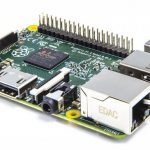
It’s fair to say Raspberry Pi, the super-affordable ARM GNU/Linux computer, has been a massive success. Originally envisaged as a way to get kids coding again as they did in the 1980s and 1990s, the device has found a massive fan base outside of the education system, and has been selling in impressive quantities since its launch in 2012.
The British success story sold more than a million units in its first year, but since then the pace has picked up, and the Raspberry Pi Foundation has just tweeted some staggering news -- it has now sold more than 5 million Raspberry Pis worldwide.
Did you buy the Raspberry Pi 2? Here are 5 things to do first [How-to guide]

The first generation Raspberry Pi was a rousing success; its low cost and potential captured the imaginations of many. For $35, you could not only buy an inexpensive computer, but be a part of something. In other words, the Raspberry Pi community is so vast and plentiful, that ownership gains access to countless projects.
The Raspberry Pi 2 is now here, however, and it ups the ante even further. This new generation Pi is six times more powerful than the original, while retaining the same $35 price tag. Buying one is a no-brainer, but if you do purchase it, it may be confusing as to what you should do first. Don't worry, we've got your back; here are 5 things you should do.
Raspberry Pi 2 arrives -- will run Windows 10!

The original Raspberry Pi Model B launched back in 2012, and got a big update in the form of the B+ last year. However, the core of the device -- the Broadcom BCM2835 application processor -- has stayed the same in all that time.
Given how much technology changes and improves in just the space of a single year, the Raspberry Pi was long overdue for a processor refresh, and today the Foundation launches the new and improved Raspberry Pi 2.
Raspberry Pi to blast off into space
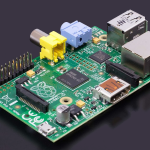
Two Raspberry Pi computers are going to be sent into space as part of a competition to get children inspired by coding and space exploration.
The Astro Pi project will take place from the middle of January and will see the devices sent to the International Space Station (ISS), containing code written by primary and secondary school children.
Creator CI20 is an Android or Linux-powered Raspberry Pi competitor
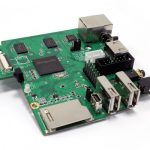
Small is beautiful, and this is something that the Raspberry Pi demonstrates perfectly. But now there's a little competition. The Creator CI20 is a new diminutive micro-computer which offers more power than an existing Raspberry Pi, as well as a choice of operating systems -- Android or Linux.
The company behind the barebones computer is another UK chip manufacturer, Imagination, and at just $65, it's a perfect stocking stuffer. Or at least it would be if units were going to ship before January 2015. Like the Raspberry Pi, the Creator CI20 is a fully loaded board designed for use in all manner of DIY computing projects.
Pi-Top launches: Get your own DIY Raspberry Pi laptop for $285

The Pi-Top, which is a do-it-yourself Raspberry Pi laptop, has now been launched, and has already easily surpassed its crowd-funding target.
If you missed this one when it first hit the headlines back in September, the invention is a 3D-printable full laptop built around the famous tiny and inexpensive Raspberry Pi computer.
Raspberry Pi introduces the better, and cheaper Model A+
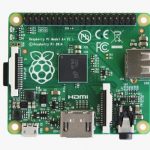
Raspberry Pi, the hugely popular credit card-sized ARM GNU/Linux computer, is available in two versions -- the Model A and the Model B. Four months ago the Raspberry Pi Foundation launched an updated version of the latter called the Model B+, which added more USB ports, more GPIO and microSD support (among other features). Impressively, the price remained the same -- $35.
Today the foundation announces an upgrade to the cut-down Model A called -- can you guess? -- the Model A+, and while it’s better than the A in several ways, it’s also smaller and cheaper.
The Pi-Top is a 3D-printable Raspberry Pi laptop that anyone can make

DIY laptop building is about to hit the mainstream thanks to a new project based on the Raspberry Pi that uses 3D printing to bring a revolutionary concept to the Kickstarter crowd-funding site.
Pi-Top is a 3D-printable fully-fledged laptop based on the Raspberry Pi kit that allows anyone to build an affordable, completely functional computer whilst at the same time learning some vital skills.
Get started with Raspberry Pi
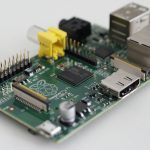
We’re big fans of the Raspberry Pi here at BetaNews. The super-cheap credit card sized computer was created to help get kids back into programming, just as they did in schools in the 1980s and 1990s, but the ARM GNU/Linux board has found an appreciative audience outside of the education system, with over 3 million Pis sold since 2012.
Getting started with the device is easy enough, and there’s plenty of help and advice available on the Raspberry Pi Foundation’s website, but if you want a simple, straightforward guide then Manchester based NeoMam Studios has put together an infographic covering setting up, getting started and more.
Turn a Raspberry Pi into your own personal cloud
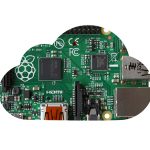
Tonido lets you transform a PC (spare, or otherwise) into a web server so you can securely access your files from anywhere, share content with friends, and stream music over the internet. You can expand the software’s functionality by installing plug-ins and there are free apps available for iPhone, Android, BlackBerry and Windows Phone.
The company has also just introduced Tonido Personal Cloud Server for Raspberry Pi, so you can now turn your credit card sized device into a personal cloud, and remotely access all the files held on any storage connected to it.
Microsoft’s Sharks Cove is a Raspberry Pi-style mini-PC with Windows 8.1
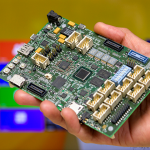
Microsoft is entering the development board market made famous by Raspberry Pi and Arduino.
The firm is collaborating with Intel and hardware manufacturer CircuitCo to develop the $300 board, called Sharks Cove. Available now for pre-order, the project is described as a "development board that you can use to develop hardware and drivers for Windows and Android".
Help fund a solar-powered Raspberry Pi school
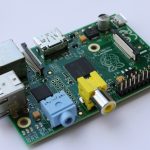
The Raspberry Pi Foundation’s Eben Upton was inspired to create his bare-bones credit-card sized computer after noticing a decline in the number of children learning to code. He wanted to create a cheap computer designed to be programmed, much like the BBC Micro, which was hugely popular in UK schools back in the 1980s.
Although the Raspberry Pi has since found a massive audience outside of schools, it’s still an educational tool at heart, and its low cost and energy efficiency make it ideal for introducing computers into rural schools in developing nations.
Raspberry Pi introduces an improved model -- the Model B+
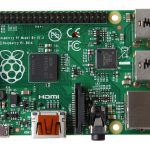
We’re big fans of the Raspberry Pi here at BetaNews. The popular (not to mention super-affordable) credit card-sized ARM GNU/Linux computer was designed to bring programming back into schools but has quickly found an audience way beyond that.
The Pi is available in two variations -- the $25 Model A, which comes with just the one USB port and no Ethernet, and the more advanced $35 Model B with Ethernet and two USB ports. Today, however, there’s a third choice -- the Model B+.
Crack out the champagne -- Raspberry Pi sales hit the two million mark
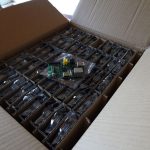
The Raspberry Pi has been at the top of my ten year old nephew's Christmas list for months now, and every time he comes to visit he asks me to power up the Model B I bought back in March, and of course I’m more than happy to do so -- any excuse.
The super-affordable uncased ARM GNU/Linux computer has been enjoying huge success since it launched in 2012, selling a million units in its first year (see the Q&A we ran with the Raspberry Pi Foundation’s Liz Upton following that milestone) and we reported sales had hit 1.75 million a little over a month ago, so it’s impressive to hear that the British-made board has just smashed through the two million mark.
Raspberry Pi sales hit 1.75 million

You might have noticed that we're fans of the Raspberry Pi here at BetaNews. The company behind the Pi announced today that it had reached the milestone of 1.75 million units produced, with a million of those being built in the UK.
The first Raspberry Pi models were built in China but since September 2012 production of the tiny educational computer has been moving back to the UK. Using a plant owned by Sony in Pencoed, South Wales, the Pi's manufacturing partners RS Components and Premier Farnell have moved all production back onshore. For the past few months all Pis on sale have been made in the UK.
© 1998-2025 BetaNews, Inc. All Rights Reserved. About Us - Privacy Policy - Cookie Policy - Sitemap.